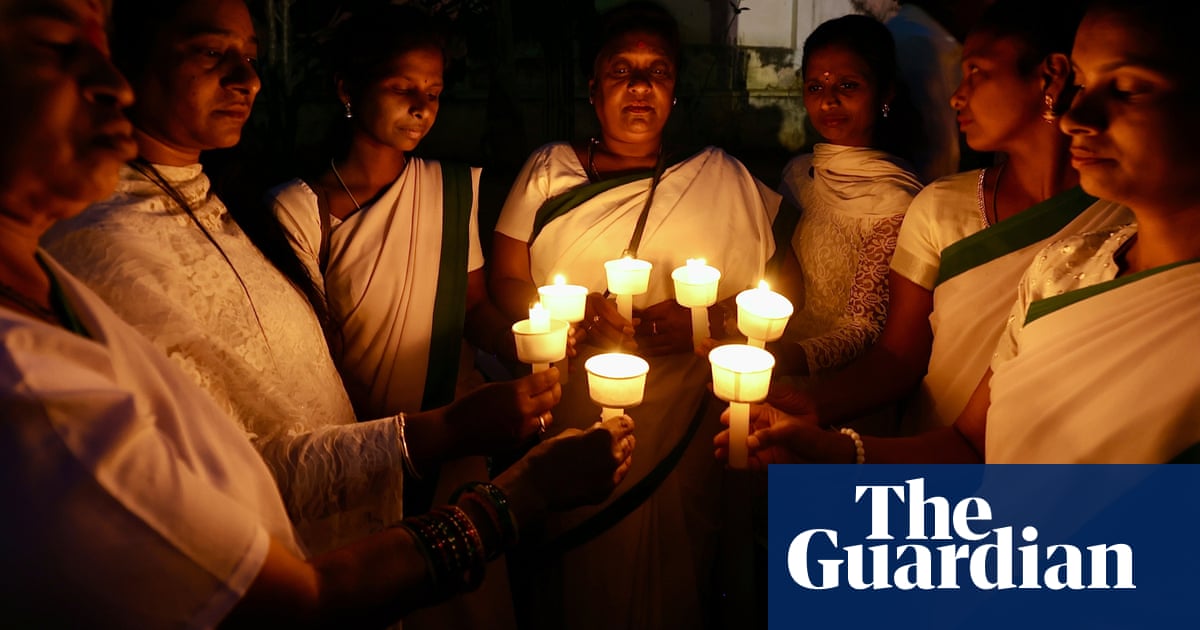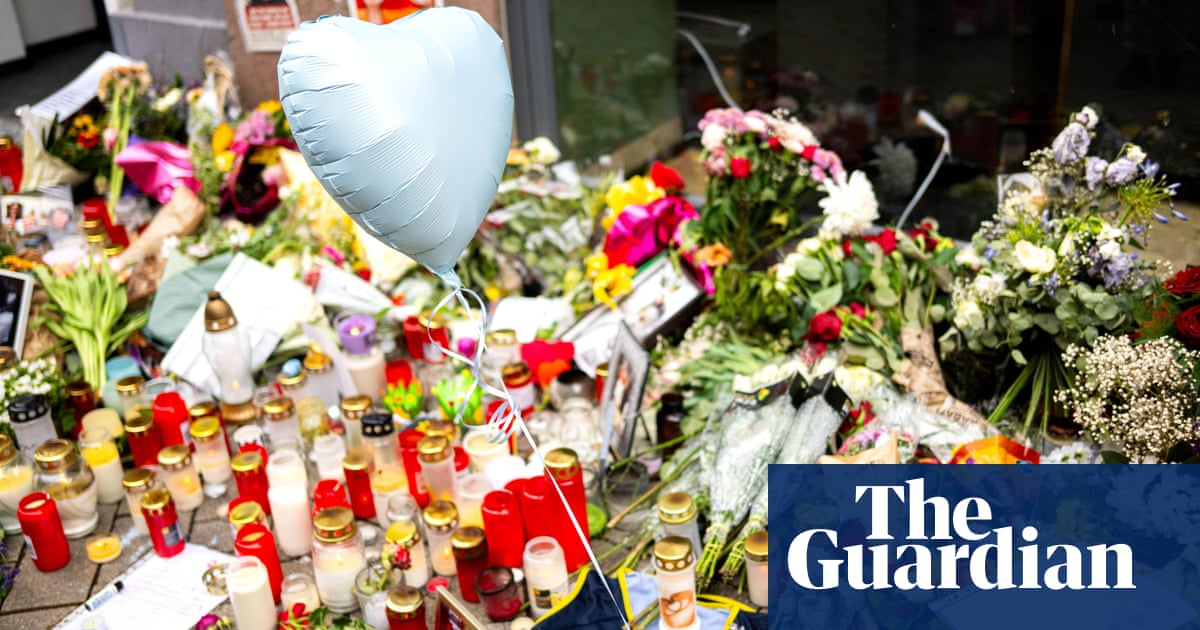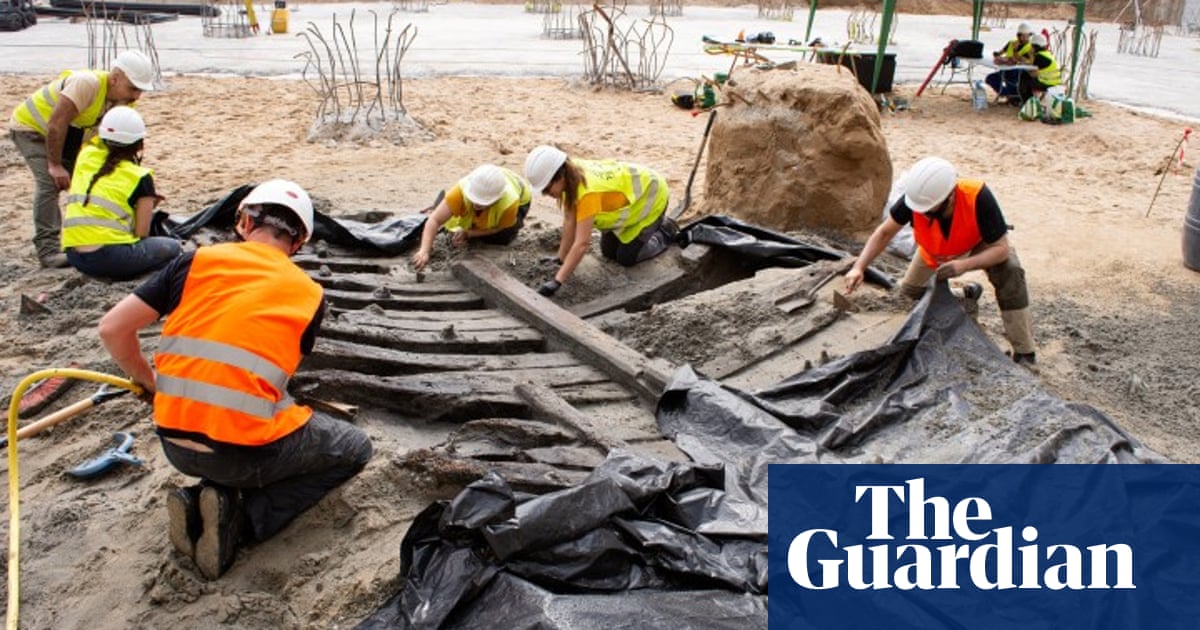It was a Sunday in late October 2024 when Jesus Rodriguez, then 29, voted for the first time.
He voted in person for the presidential and state races, but his polling place wasn’t at a church, school or community center – it was inside the Jefferson county jail in Colorado.
“It will be one of my top five experiences being able to vote,” Rodriguez said in a video the Jefferson county sheriff’s office shared on social media. “I guess one vote means everything, so I would say that it made me feel good to know that my opinion matters.”
The Jefferson county sheriff’s office said about 125 inmates voted in person on the same day as Rodriguez and that the temporary polling place was the result of a state mandate to expand voting access while in confinement.
Colorado became the first US state in 2024 to require at least six hours of in-person voting for one day for eligible individuals being held at local jails and detention centers. State officials say only inmates who are serving time for a felony conviction are unable to vote. If you are serving time for a misdemeanor or in jail awaiting trial, you are still eligible to vote in Colorado.
After the 2024 general election, the new law led to nearly 2,600 people in confinement voting, either in person or by mail ballot, according to the Colorado secretary of state’s office. That’s more than a 1,000% increase in votes cast from jail compared with the 2022 general election, when the Colorado Criminal Justice Reform Coalition reported only 231 incarcerated individuals voted that year. Previously, only the Denver county jail and Van Cise-Simonet detention center (both in Denver) allowed in-person voting for inmates.
“There’s people in here for you know petty charges all the way up to very serious charges, but that doesn’t exclude us from having the right to vote and us to have the right to have our opinion shared with the world just because we’re incarcerated. I believe it doesn’t make us any different, we just made some mistakes,” Rodriguez said.

State officials say the law also requires sheriff’s offices and counties to inform incarcerated eligible voters about candidates and measures included on the ballot, accept mail ballots, and allow mail and provisional ballots.
“We got one step closer to realizing our democracy’s full potential and that feels great,” Amanda Gonzalez, Jefferson county’s clerk, said.
Gonzalez pushed for the new state law, but she admits that it wasn’t “politically popular” due to concerns about costs and safety. Jefferson county’s sheriff, Reggie Marinelli, testified against the proposal twice during the Colorado state legislative session, but once the law was passed, Gonzales said the sheriff “got onboard and was great to work with”.
Ultimately, she believes the new mandate is one more way to help inmates stay engaged with their communities.
“Voting isn’t an academic exercise, right? It is the way that you actually make your voice heard in government, and often times, people that have involvement with our criminal justice system are people that have been told that they shouldn’t have a voice, or they’re not worthy of a voice, or that their opinions don’t matter, and that is absolutely not true,” Gonzalez said.
Experts say this is also a civil rights concern because many people behind bars may be innocent but couldn’t afford bail. The latest data from Prison Policy Initiative, a non-profit, non-partisan organization, estimates roughly 457,000 people who are being held in jails nationwide have not been convicted of a crime.
“The vast majority of people who are being detained pre-trial don’t necessarily know they’re eligible to vote from jail,” said Dr Meredith Sadin, who focuses on political access, community engagement and inequality at the University of California at Berkeley. “Also, the process of procuring a ballot is challenging, right? Jail mail is kind of notoriously slow and ineffective, and there are really tricky elements to registering to vote and registering to vote for a vote-by-mail ballot when you are in jail, right?”
While voting by mail remains the most popular method in jails, several large jurisdictions have set up voting centers inside detention centers. In 2020, the Cook county jail in Chicago became the first jail in the country to become a polling place, and the Will county detention center in Joliet became the second jail in Illinois to open a polling place.
The Harris county jail in Texas, Century Regional detention facility in California, and DC Central detention facility in Washington DC also offer in-person voting.
Sadin said she would not be surprised if more states follow Colorado’s lead. However, she added that those measures are not necessary to expand access.
“Sheriffs and election administrators can do this. You know they don’t need a mandate,” said Sadin.

 4 hours ago
3
4 hours ago
3













































